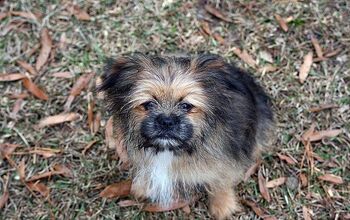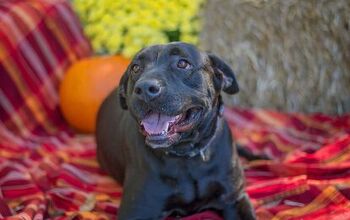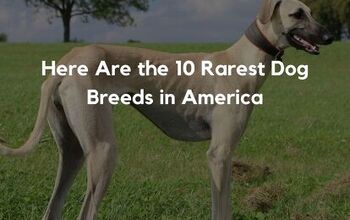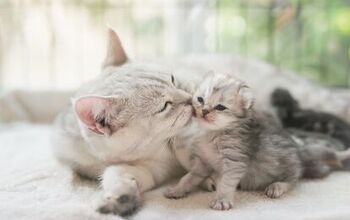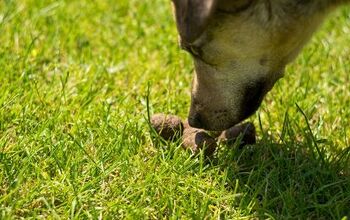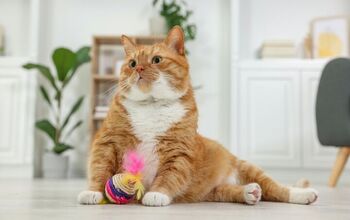Pom-Coton


About Pom-Coton
The Pom-Coton breed is one of the more recent additions to the world of designer dogs, and they’re quickly taking it by the storm. The loving, kind nature of these small dogs, as well as their impressive intelligence and ease of trainability, can be considered the reason why these pooches are so popular. Of course, not to mention the fact that these adorable mixed breed puppies look like fluffy little angels! Pom-Coton or Pom de Tulear, as this breed is also known as, is developed by crossing the Pomeranian and a Coton de Tulear, two beloved small dog breeds with great temperaments.
It should go without saying that there is a lot of people don’t know about designer dog breeds, Pom-Coton included. What we do know, though, is that these hybrid dogs tend to be a lot like their parents, both in terms of personality and looks. Sometimes they’ll favor one parent more than the other, and in some cases turn out to be a perfect blend of both. When it comes to Pom-Coton, this means you can expect to have a very affectionate dog that will love nothing more than to spend time with you, whether it’s for some quality playtime or snuggling on the sofa for a cuddle session.
Pom-Cottons are sweet, loving, and devoted to their owners- they’ll fit in any family with ease.
The exact origin of most designer dog breeds is hard to pinpoint, and it’s no different for the fluffy Pom-Cotons. Most sources agree that this hybrid dog breed was created in the United States, sometime in the last few years, when designer dogs became all the rage. The fact that Pom-Coton doesn’t have a long history doesn’t mean that you can’t guesstimate a lot about their expected appearance and behavior.
Both of the breeds that were used to develop the Pom-Coton have an impressive track record as family pets and rich histories to back it up. Pomeranians have been prized companions ever since the 18th century, and they were favored by nobles, living on courts of great historical figures such as Mary Antoinette and Queen Victoria. Coton de Tulear’s origin is a bit more mysterious, though, as nobody knows how they came to be- but its roots can be traced to the island of Madagascar, where they enjoyed a special status for more than 3 centuries. These companion dogs are also known as the “Royal dog of Madagascar” and they only started becoming popular around the world in the 70s, when the first Tulears were brought to France.
Pom-cotons are a designer dog breed, which means that they are not officially recognized by American Kennel Club or any other official canine organization that can give out pedigrees. The reason for this is that there are no strict breed standards these puppies need to conform to, and there’s a much greater individuality among them, making it harder for Pom-Cotons to fit in with rules of the AKC. While Pom-Coton puppies can’t have a pedigree, their parents can- if your puppy’s mom or dad are show quality dogs with a pedigree, it’s highly likely that they will cost a lot more than they usually would.
Pom-Coton dogs are not picky eaters; in fact, it’s highly likely you’ll have to monitor their eating habits to make sure that these tiny pooches don’t become obese. A well-balanced diet will ensure your new pet stays healthy throughout its lifetime and support their overall health. For Pom-Cotons, this will probably mean a diet comprised mainly out of high-quality food designed for small breeds.
When you are choosing the best brand or type of food for your pooch, make sure to account both for their size and activity level. As these are pooches that are bred to be primarily lap dogs and companion dogs, it’s highly likely that Pom-Cotons won’t need food meant for dogs that are active and need a lot of energy boost from their kibble. In addition, you should make sure that your dog’s food is appropriate for their age- all pet food manufacturers have kibble specially made for puppies, adults, or seniors.
Treats are a welcome addition to your dog’s diet, as long as you don’t overdo it. An occasional yummy reward will keep your pooch happy and motivate them during their training sessions. Although, in all honesty, a people pleaser such as Pom-Coton would probably do wonderful even without a tasty bribe!
A well-balanced diet comprised of high-quality kibble will ward off obesity and promote good health.
As the offspring of the intelligent Pomeranian and the eager-to-please Coton de Tulear, the Pom-Coton is usually quite easy to train. These dogs love to spend time with their owners and will jump at the opportunity to be in the center of attention and please their human too boot, making for a wonderful combination of traits when it comes to dog training. Of course, it’s not always that designer dog breeds inherit only the best traits of both parents. Sometimes, some of the less desirable qualities can get passed along to the puppies, which is why it’s essential to properly socialize them and provide basic training on time.
In the case of Pom-Coton, its incredible loyalty and affection towards his owner can evolve into a behavioral issue. If not socialized properly and trained to feel safe when alone, your new pet might develop separation anxiety issues. In addition to being incredibly stressful to a dog, this condition can lead to myriad other problems for the owner, as well, from constant barking while they’re at work to destructive behaviors such as chewing. Thankfully, with a little bit of work and effort, you can ensure that your Pom-Coton doesn’t become a clingy pooch, but rather a happy, independent pet!
There are no standards for hybrid breeds, and cross-breeding two different breeds can have unexpected results, as puppies can take up after one parent more than the other, or turn out to be a mix of both. In terms of weight, as both Pomeranian and Coton de Tulear are small dogs, there shouldn’t be any big surprises. Pom-Coton dogs tend to weigh between 5 and 12 pounds, with males usually being closer to the higher number than female puppies.
Have you ever met a pooch that seems to be one big fluffy ball of pure puppy love? Well, that’s what Pom-Cotons are like. These crossbreed dogs are well known as quite the cuddle bugs that enjoy spending time with their owner, belly rubs, and ear scratches above anything else. And how could they not be as loving and loyal as they are- since both the Pomeranian and Coton de Tulear are both treasured for their affectionate and devoted nature! In general, provided that they’ve had proper socialization, Pom-Cotons tend to be very friendly dogs, that fit in with ease in various surroundings and that are not wary of strangers. (Unless they favor their Pom genes more: then, you’ll have a petite fluffy watchdog-wannabe on your hands!)
As they love attention, Pom-Cotons can be quite entertaining, too. Once they realize that their silly antics are bringing a smile to your face, there will be nothing that could stop them from becoming a first-class canine clown! Of course, this can also be used in favor of training your pooch to respond to commands or do cute tricks- Pom-Cotons can truly shine if given an opportunity to learn.
In most cases, Pom-Coton dogs make good family dogs, although they are a better choice for a family with older kids. It’s not to say that these hybrid dogs don’t do well around young ones, it’s just that children tend to play a bit ruffer than these petite pooches can handle. Additionally, as they are very sweet and don’t have excessive exercise requirements, Pom-Cotons can be excellent pets for seniors, who will surely be charmed by these fluffy cutie pies.
As a rule of thumb, mixed breed dogs are considered to be relatively healthy. They are affected by fewer hereditary health issues than their purebred parents, which is one of the reasons why designer dog breeds were created in the first place. Pom-Coton is no different, as these hybrid dogs tend to be quite resilient if they live in optimal conditions. However, there are some potential health concerns that come as a part of the bargain- after all, these are direct descendants of two purebreds.
Genetic health problems that could affect them include Patellar Luxation ( hip dysplasia), Patent ductus arteriosus ( congenital heart defect), or Cerebellar abiotrophy ( ataxia, a neurological condition). The safest way to make sure your puppy is healthy and doesn’t have any hereditary health problems is to get them from a reliable breeder. Getting a puppy from a backyard breeder is a sure-fire way to get a sick dog- and it’s inhumane, as well.
The main concern, though, doesn’t have anything to do with inherited conditions. Since this a small breed dog, you should pay special attention to their oral hygiene. If their dental health is neglected, these pooches can suffer from early tooth loss- so make sure to brush those canines on daily basis.
Most Pom-Cotons haven’t been around that long for experts to know their expected lifespan. However, based on average lifespans of the Coton de Tulear and Pomeranian, one can guesstimate (pretty accurately, at that) what’s the life expectancy for the Pom-Coton. If you meet your pet’s basic needs and provide them with good care, you can expect them to have a happy, healthy life that will last between 12 and 16 years on average.
Pom-Cotons are bred to be companion dogs and lap dogs, same as their parents. When it comes to their activity needs, this means that they won’t need much exercise to stay in top form. These designer dogs have moderate exercise requirements, and 30 to 45 minutes of daily physical activity will ensure that they are content and healthy. This could be a few daily walks, a game of fetch in the doggie park, or some outdoors time in a fenced yard.
The moderate activity levels of the Pom-Coton make them a perfect pet for people who live in an apartment. As they really don’t need much exercise to meet their daily goal, you won’t have to feel guilty for not having a backyard where your pooch can burn off their energy. A simple walk around the block will keep your pupper happy- after all, it’s your company they crave the most!
The moderate activity levels of the Pom-Coton make them a perfect pet for people who live in an apartment.
As a designer dog breed, Pom-Coton is not recognized by the American Kennel Club. However, there are clubs and organizations that do recognize them, such as the American Canine Hybrid Club, Designer Dogs Kennel Club, Dog Registry of America, and International Designer Canine Registry.
The Pomeranian is most recognizable for its fluffy long hair, whereas Coton de Tulear flaunts cotton-like soft coat that’s always white, sometimes with greyish shading around the ears. What does that mean for their offspring? Pom-Coton will definitely have a medium-long to long hair, and their fur will be soft and velvety. The details will depend on whose parent’s genes the puppies favor: puppies can be white or come in one of many colors Pomeranians exist or even be bi-colored. With designer dogs, you can never know!
When it comes to grooming, Pom-Cotons are not high-maintenance. They will need brushing a few times a week, though, to prevent their fine hair from matting, as well as a bath every few weeks to keep your pooch feeling fresh.
Pom-Coton puppies are as cute as they come! Tiny, fluffy and adorable, they will grow up to be beautiful dogs with lovable character. As they originate from two small dog breeds that are primarily bred as companion dogs and lap dogs, Pom-Cotons will also be ideally suited for those roles.
These petite pooches will instantly belong to your family, regardless of its size. Whether you have teenage children or live on your own, you can count on the adaptable Pom-Coton to fit right in! To boot, as they are not overly active and they have a sweet, loving disposition, these dogs are a great match for seniors.
Photo credit: Lulub/Shutterstock; Emily Hinz/Shutterstock

A proud mama to seven dogs and ten cats, Angela spends her days writing for her fellow pet parents and pampering her furballs, all of whom are rescues. When she's not gushing over her adorable cats or playing with her dogs, she can be found curled up with a good fantasy book.
More by Angela Vuckovic








